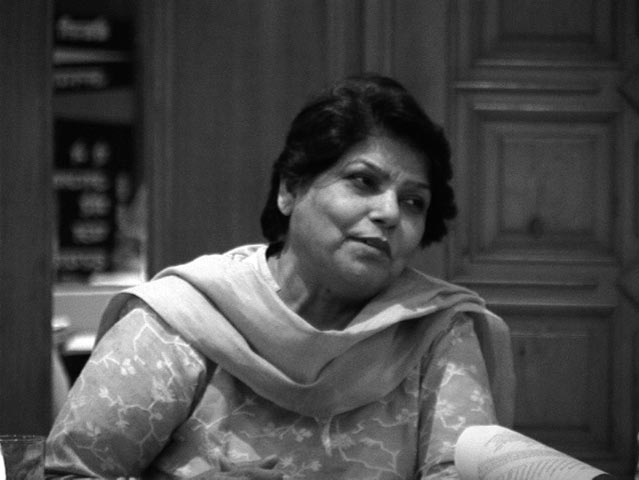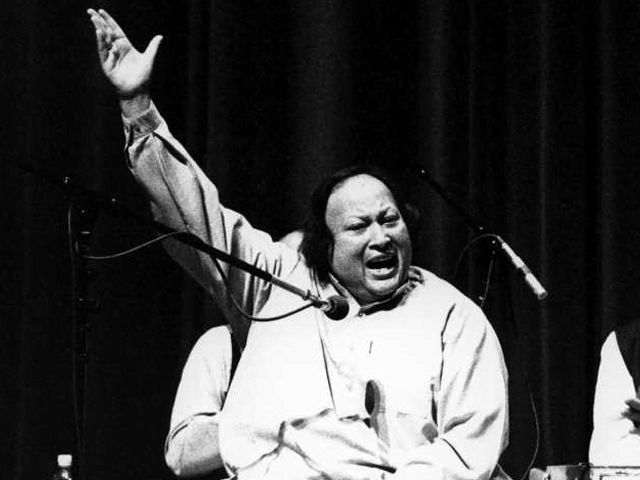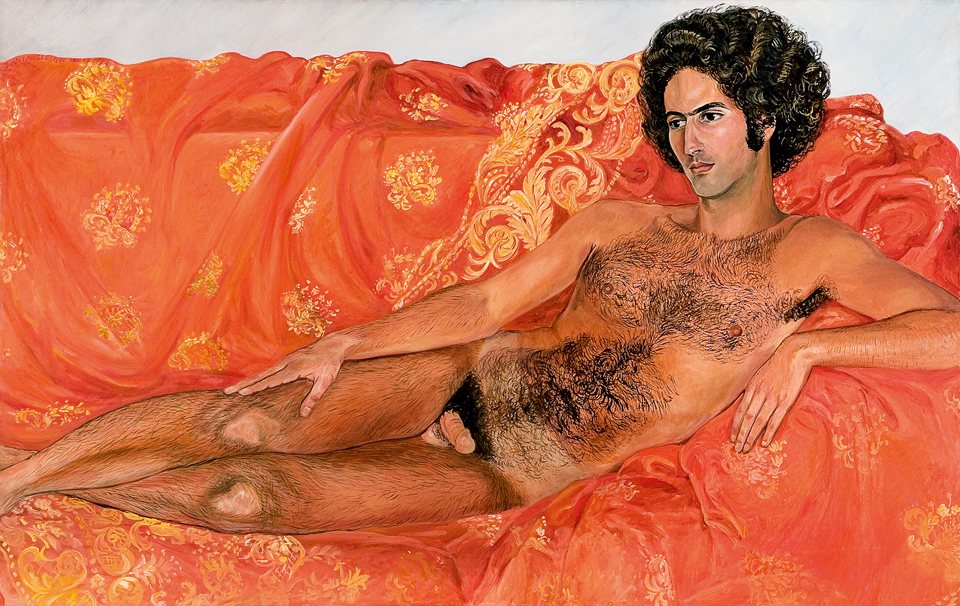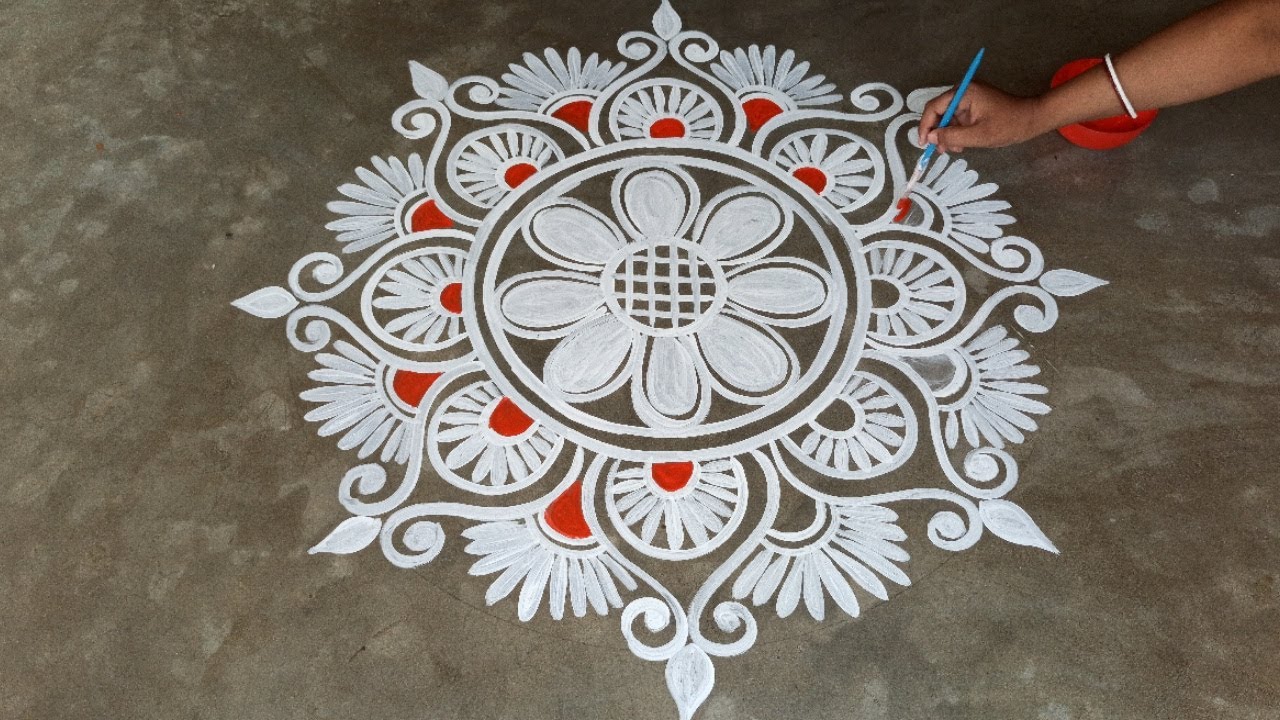On days when my mother wouldn’t make too much of my insincerity towards religion, I’ve often told my mother in good humour that if I could bow down to anyone except for god it would be the maestro Nusrat Fateh Ali Khan Sahab, possessor of the most beautiful voice in the world, that has the power to hook me to 20 minutes long Qawwalis early in the morning. Even when I’m out with my friends, I would often fight with them to play these “excruciatingly long” (in their words) Ghazals, Nazms and Qawwalis instead of some rock music or the deafening EDM.
Such is my dedication to this pristine form of art!
One such morning while listening on loop to, ‘Kali Kali Zulfon ke phande na daalo’ which literally translates to ‘do not lure me with your lustrous (black is used figuratively) hair…’, I realized that I was missing something.
After several references to jawani (youth), adaayein (charm) and dagha (deceit), I realized that it was basically a song about a bitter man defeated in love, blaming the failure of his lost pursuit on his beloved’s beauty and all its typical consequences – that she is unfaithful, her demonized beauty compared to a snake that would kill his innocence, blaming her for casting ‘evil spells’ (hints about witchery, anyone?) on innocent men with her black tresses.
All blame is rested on the woman’s beauty (read: sexuality). Ring a bell?
Let us dig a little deeper
On the surface, you could just go on and on listening to this man singing unending praises for a woman, but once you venture deeper, guess what you find? Alas, everyday sexism and subtle propagation of rape culture.
In another Qawwali song by Nusrat Fateh Ali Khan, ‘Husn waalo’n se Allah bachaye’ literally meaning ‘May God save Me from the Beautiful ones’, he goes on to describe how a man should take upon himself any disaster but not fall in love with a ‘beautiful’ woman. There is an elaborate description of all the possible reasons for a beautiful woman to be deceitful and tyrannical, fond of doing zulm (inflicting pain) on her lovers. A line from the song, ‘Inki fitrat mein hai be-wafaai’, goes on to attribute the deceit of these pretty women to their very nature.
To offer a gist, an extremely attractive woman is being defined by the Qawwal as an evil tramp who would ‘phasao’ (trap) the men around her and use her sexuality to play them. A typical everyday trope on the internet, right?
In ‘Kali Kali Zulfo’n ke phande na daalo’, there is actually a very clear reference to the state of human society in a dystopian/degraded state because of the beloved’s beautifully ‘scandalous’ black hair and pink cheeks.
“Ye sumbal se gesu, ye aariz gulabi,
Zamane me laayenge ik din kharabi…”
In an abundance of examples of similar nature, what we find is that these poets were really obsessed with what seems to me like the perfect image of a ‘modern’ woman – one who knows she is beautiful, one who embraces her sexuality rather than demonizing it and one who does not hesitate in using it.
Why do we ignore flaws in the language?
A recent realization has dawned upon me that with such a dedication to a man and more importantly to an art form, it becomes inevitable for me to discover, and incumbent to point out the inherent misogyny contained in it. In an age of popular culture where we have more people who love the idea of a language than the number of people who actually know it, it is hard to pick on the flaws of the divine state that Qawwali has acquired.
Apart from that, Urdu speakers in the country are marginally lesser than the number of people who listen to songs in Urdu. That simply means that most people are not even in a position to critique something they do not fully understand.
Other reasons
With knowing (and loving so dearly) a language that is dying at such a fast pace, there also lies a burden on me to do my bit to preserve and advance the language in whatever ways possible, or to ‘cut it some slack’.
Along with people who do know the language, there has been an immense amount of effort by lovers of the culture and heritage such as Rekhta to preserve the language and has made many more people interested in learning it and others, in simply engaging in its appreciation. Having said this, I must admit that I feel almost guilty for doing this.
Language: Bollywood vs offbeat forms of music
Bollywood, owing to its populist approach and resultant fame enabling a clear understanding for the audience, has been under the scanner multiple times whereas other lesser known forms of music and art haven’t. Bollywood songs are heavily parodied and every day a new film or song on women empowerment or other relevant social themes can be seen. Bollywood and other mainstream forms are now coming up with lesser problematic content (or are at least trying to).
Also Read: Rashid Jahan: The Bad Girl Of Urdu Literature | #IndianWomenInHistory
As a result of its decline in post-Partition India, Urdu, as a language has suffered stagnation, at least in post-Partition India and has not evolved as much as other languages such as Hindustani (used in films and Bollywood songs) has.
Qawwali and very often other forms of Urdu poetry become inherently misogynistic because of the time/culture it takes birth from and its long-dated history of not being critiqued. When Urdu originated, it was primarily only men who worked on the language. So naturally, the language has words which these men wanted.
Of course, Urdu is one of the most beautiful languages in the world, but for it to survive, its sexism needs to be addressed for it to fit into an ever-growing society. Just like any other form of art, Urdu poetry is also a reflection of the society which demands a more egalitarian vocabulary and artists now. As a tool of communication, it has the power to shape cultural norms.
Were Ustad Nusrat Fateh Ali Khan and other maestros sexist?
Nusrat sahab was famed not only for his Qawwalis but for many other forms or songs he sang such as the ghazal, nazm and even religious forms such as naat and hamd. He has sung the song ‘Chaap Tilak’ written by Nizamuddin Auliya’s disciple, Amir Khusrau and ‘Afreen Afreen’ penned down by the present day lyricist Javed Akhter. He was also known to be influenced by Rumi.
Considering the delayed growth of the language and the stagnation that it has seen, it’s safe to assume that these artists may not be necessarily sexist (mostly just ignorant), but at the same time, we must remember that in no circumstances should this be acceptable!
Ignorance is no excuse when it means propagating rape culture and contributing to the oppressive structures against women in any intensity. It is high time that we start to expect the new age of poets to evolve and do better than their role models. Rahat Fateh Ali Khan, are you listening?
What is the fuss all about?
Constantly appreciating a woman’s beauty but associating it to her ‘adulterous nature’ and demonizing it is part of a bigger problem. It is the artistic equivalent of male gaze wherein the man’s idea of a woman’s beauty entirely defines her, consuming her individuality in the process.
A larger harm?
A woman’s hair being held responsible for bringing ‘kharabi’ in the society, her beauty responsible for the corruption in society and eventually for the condemnation of the entire humankind all contribute to furthering the deteriorated position that women hold in society and in fact, justifies it.
Some parts of the songs, though subtly, also contribute to rape culture.
The feminine dichotomy in Urdu poetry
There exists a Jane Eyre like angel-demon dichotomy in Urdu poetry. Either the woman is the evil beloved or she is angelic and indescribable. On one hand, there is the docile, innocent, ‘angelic’ woman with her ‘bholi surat‘ whereas, on the other hand, there is the extremely beautiful woman just waiting to trap men with their ‘kali zulfein’.
Not just that, women are judged for something where men are equal participants! Men deriving pleasure and then cursing. How typical! Urdu has tens of thousands of degrading words readily available to describe women. Wait for it!
Rekhti – a reaction to such poetry
There is plenty of poetry admiring a woman’s beauty but hardly any women poetesses admiring their own, and if she does so, it would be typically faced with criticism. What does this tell us about Urdu poets? That they love to appreciate women only as long as they happily take compliments from them but remain innocently oblivious to their beauty.
Another thing to note is that this branch of patriarchal poetry has also hardly praised men. Why, are none of our men worthy of endless praise and desire? Where does one draw a line between harmless praise and unsolicited suggestive compliments? In the above-mentioned kind of Urdu poetry, a very thin line exists between the two.
Rekhti is a kind of poetry where male poets write in the female voice, trying to imitate their narratives. Double negative? Hmm.

Kishwar Naheed. Image Source: WikiPeaceWomen
Women are known to have entered the domain of Urdu Shayri in the late 20th century. Male-dominated Urdu poetry marveling at the beauty of women, at the same time stereotyping them as evil was challenged by the likes of Kishwar Naheed who embraces all that has been said about women with open arms in, ‘Hum gunahgaar auratein‘ (we are the sinful women) and Parveen Shakir’s ghazals that arise from the honest, plain and beautiful subjectivity of women.
It’s time women take hold of the reins and go on to bequeath the world with stories of their struggles, in their own voices.
Also Read: Feminist Poetry: Contemporary Woman Poets Who Challenge Patriarchy In Hindi & Urdu
Featured Image Credit: Express Tribune
About the author(s)
Can one take pride in calling herself an intellectual badass?





This writer is all over the place.
She is either too naive or just one of those wannabe writers who don’t know the stuff they are talking about.
She thinks the poetry written is against women when she doesn’t know that Sufi poetry and Qawaalis have always had a metaphorical meaning.
When Amir Khusrow talks about being Suhaagan of Hazrat Nizamuddin, does he talk about his love for the divine and his desire to be one with him, or a purely physical desire to be with his Murshid?
The writer is so confused that she’ll jump from Qawaali of Nusrat to Urdu poetry and it’s patriarchy.
Most Qawaalis are written in Khari Boli or Awdhi. Urdu Qawaalis are few and recent.
I would suggest she goes and listens to Baju Band Khuli Khuli jaye by Abu Mohammad. It talks about the ordeal of Radha and how she has become thin waiting for Shyam.
Obviously the unintelligent will look at it as a story but only those who know how to appreciate poetry will find the subliminal layers.
Nusrat’s Afreen Afreen and others are a result of Pop music and are written by crap writers like Jawed Akhtar.
The writer has a problem with woman’s beauty being praised but fails to see that it may not be talking about women.
If she had gone through Punjabi poetry she would have known that.
When Bulleh Shah talks about his love for his Murshid, more than the spiritual homo-erotic tones there is a description of soul and the desire to be one with the divine.
For an article that uses (for click bait) Nusrat’s name, there aren’t any strong points against him. It is more of a critique of the male gaze in Urdu literature: something that is written about and rightly so.
A person who doesn’t understand what ‘haal’ is and what Qawaalis stand for should have done a fair bit of research.
Maybe listen to Begum Akhtar and realise how poetry of Shakeel Badayuni is transformed by her and it sounds like it comes from a female voice.
Same can be said about Noorjehan and how she turned Mujhse pehle si Mohabbat from a man’s angst into one of woman.
I even wonder if the writer has witnessed Qawaali up front to know its intricacies!
Really disappointed with Feminism India. You could have vetted this piece. This is the first time something unnecessary has been published in your website.
Ur one learned individual. Glad to read your views. There is very little to agree on what the author has to say.
I really appreciate you discussing the depth and real meaning of Nusrat saahab’s qawwalis but I guess you have not listened to Ustaad Nusrat Saahab’s Punjabi qawwalis which if we talk about sexism are completely opposite and in which the female is advised not to fall in love with the male and the males are shown as disloyal and Heartbreakers while a woman’s love is shown as extremely loyal and pure.I think all this poetry is made from the experiences of the poet(bad most probably), I do not see any sexism in it.
Wow..you can find sexism in everything.
‘Ye mere junoon ka hai moziza..
Jaha apne sir ko jhuka diya..
Waha maine kaaba bana diya”
-Excerpt from ye jo halka halka suroor
Now call him blasphemous as well.. becoming dumb is a new trend now a days..
Anthropologically speaking, when you study literature of diffrent times and place from the presepctive of current global cutlural context, It is going to appear unconvincing. Art of any form reflects society and vice-versa, which is very evidently seen in their writing.
I am not qualified to speak except from the heart. Men with their larger bodies and denser bones armed with linear thought, when grouped together are a force to be reckoned with, yet even hell hath no fury like a woman’s scorn. Mighty army’s fall for the grace of sheer beauty. Frustrated at his own impotence, some lesser men have demonized women while others recognize the ultimate power of creativity. Men can destroy and women can give birth. Balance makes the best songs, poetry and literature. The tensions between the two, bring them to life. My thanks to the author Ismat Ara for sharing her views, music and poetry to ignorant souls like myself.
The author obviously doesn’t understand a thing about classical Indian music. Firstly, Nusrat Fateh Ali Khan did not compose the lyrics of the qawaali’s he sang – they are almost entirely part of the canon of the long oral tradition of the Sufi and Bhakti poets and scholars, composed of both men and women. The Sufi’s and Bhakti’s used visual metaphors of erotic love to talk about something completely different, which was the relation between human mortals and the Divine. The original authors of these qawaalis were not evern remotely concerned with female objectification – that is not why these qawaalis were written, nor did the authors share the same modern sensibilities that we hold today – they cannot be evaluated through our modern lenses or terms.
Secondly, like all classical music traditions, one has to be interpellated, educated and sensitized into appreciating the aesthetics of the forms, which this author clearly demonstrates not to have when she mentions she tunes out when listening to classical music but loves rock and pop. One needs to belong to a particular cosmological or cultural tradition in order to truly appreciate the artwork on more than a surface, but the author demonstrates no such cultural competency – she is literally incapable of appreciating the artwork for what it is, on its own terms, because she literally does not understand it.
Thirdly, if we buy your argument that past works of art should be evaluated on modern conceptions of gender and sex, the whole history of art, music, drama, architecture etc., in other words, ALL works of culture, intellect and creativity will be misogynist, racist, ageist, or any variation of an identity -ism. Do we then throw out the whole history of human culture because all of it doesn’t agree with our modern identities and sensibilities? Do we only keep artworks that please us or don’t seek to offend anyone? Do we start taking out our markers and start marking out where, in every great work of literature, someone might have written something that is now, in our modern time, construed as improper? It becomes even more ridiculous when she starts suggesting that an entire language, Urdu, spoken by both male and female speakers, might be inherently sexist.
We might as well begin burning libraries to the ground.
Can art even be created this way? Because I think the author is suggesting here that every artist, musician, performer etc. suddenly start actively censoring what they do out of a concern for offending others. Since I don’t believe that the author is herself a creator of art of any kind, I don’t think that she understands that censorship or political correctness is antithetical to the work of art.
This is probably the worst form of misinformed, misaligned feminism I have ever seen, and unfortunately gaining grounds these days – it has no understanding of history, culture, or creativity. Everything can and should be reduced to identity politics, to self-victimization rather than empowerment, and throwing out anything that offends one’s senses out the window with no constructive thought for alternatives or an appreciation for work that both men and women have historically produced.
At least the Sufi and Bhakti saints were trying to emancipate people from class\caste\ethnic politics through their poetry and music, something the author would understand if she had ever bothered to read a history book. What have her modern rock and pop idols done for others?
Ridiculous couch-potato political activism befitting an ignorant generation that grew up without any culture.
Many people have commented a lot and it makes absolute sense. Khanum Ismat Ara, I can understand your ‘junoon’ for expressing your views. But, you know what, I study Literature and whenever we make any kind of claim on any piece of literature, our teachers tell us one thing : It should hold water.
Your absolutely abhorrent claims aren’t backed by any substantial analysis.
I would like to comment on one specific phrase you seem to use quite liberally. You used the term ‘rape culture’ 3 times in your article and once as a tag. This is how Oxford Dictionary defines ‘rape culture’:
“A society or environment whose prevailing social attitudes have the effect of normalizing or trivializing sexual assault and abuse.”
Tell me, Khanum, where has this happened even once throughout the poem that the poet has envisioned such a society or created such an environment? Even once? Even a
single suggestion? Does the poet talk about anything sexual at all? By using such a phrase in this context, you are actually trivializing actual rape culture.
You cannot levy such a huge charge upon a whole poetic tradition, Ismat Khanum. This is immensely repulsive.
Many people blame video games for violence. Many people blame literature and language for rape culture. I find both of them funny and pointless. But anyway if you have a website where you have to constantly whine about things, there will inevitably come up silly topics like this one. And about those songs, every one of those we understand from the perspective of a hurt person and how they would feel and say things. Just like I have seen thousands of people saying I don’t trust men. I don’t trust rich people. I don’t trust people from that area of the country. When someone say this they don’t necessarily propagate violence or anything bad against those group of people. They just say it out of their grief and emotions. So any educated person would not take it for anything else. So you know what could work against ‘rape culture’? Education and not whinning about particular language or literature.